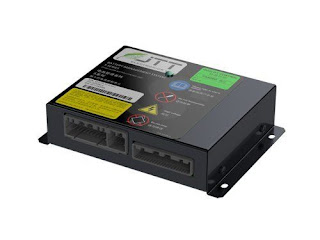Role of Lithium Battery Management Systems in Electric Vehicles
As the automotive industry undergoes a transformative shift towards sustainability and cleaner transportation, electric vehicles (EVs) have emerged as a frontrunner in this green revolution. At the heart of these cutting-edge EVs lies a technology that ensures optimal performance, safety, and longevity of the power source - Lithium Battery Management Systems (BMS).
Understanding
Lithium Battery Management Systems:
Lithium-ion
batteries serve as the powerhouse for electric vehicles, storing and delivering
energy efficiently. However, to harness the full potential of these batteries,
advanced management systems are imperative. The lithium ion
battery suppliers in Canada offer the proper understanding.
1.
Optimizing Performance:
One
of the primary benefits of BMS is the optimization of battery performance. By
carefully managing the charging and discharging processes, BMS ensures that the
lithium-ion battery operates at its peak efficiency, delivering a consistent
and reliable power supply to the electric vehicle.
2.
Extending Battery Life:
The
longevity of lithium-ion batteries is a critical factor in the overall
cost-effectiveness of electric vehicles. BMS plays a pivotal role in extending
the battery life through features such as cell balancing, overcharge
protection, and temperature management. This not only benefits the environment
by reducing the frequency of battery replacements but also enhances the
economic viability of EVs.
3.
Enhancing Safety:
Safety
is paramount in the design and operation of electric vehicles. BMS incorporates
multiple safety features, including overcurrent protection, short circuit
protection, and thermal protection. These features prevent potential hazards such
as overheating or electrical malfunctions, ensuring the safety of both the
vehicle and its occupants.
4.
Monitoring State of Charge (SOC) and State of Health (SOH):
Accurate
monitoring of the State of Charge (SOC) and State of Health (SOH) is crucial for
effective energy management. BMS provides real-time data on the battery's
remaining charge and overall health, allowing drivers and vehicle management
systems to make informed decisions about energy consumption and maintenance.
5.
Cell Balancing:
BMS
ensures that each individual cell within the battery pack is balanced,
preventing uneven charging or discharging. This balance contributes to a more
stable and efficient battery pack, enhancing overall performance and
reliability. The lithium ion battery suppliers in Canada offer
the proper balancing.
6.
Fault Detection and Diagnostics:
Continuous
monitoring by BMS enables the early detection of faults or abnormalities in the
battery pack. This proactive approach to diagnostics allows for timely
maintenance, reducing the risk of unexpected breakdowns and ensuring the
reliability of electric vehicles.
7.
Temperature Management:
Maintaining optimal operating temperatures is crucial for lithium-ion batteries. BMS monitors and controls the temperature of the battery pack, preventing extremes that can lead to thermal stress. This, in turn, preserves the battery's performance and prevents premature aging.
As
electric vehicles become increasingly integral to our transportation landscape,
the role of Lithium Battery Management Systems cannot
be overstated. These systems are the linchpin that ensures the efficiency,
safety, and longevity of the lithium-ion batteries powering the electric
revolution. With continuous advancements in BMS technology, the future of
electric mobility looks brighter than ever, promising a cleaner, greener, and
more sustainable mode of transportation.




Comments
Post a Comment